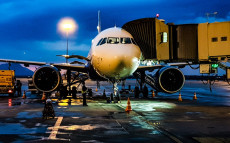- pathfindersAI
- Job Profile
Airfield Operations Specialists
Summary
Airfield Operations Specialists: A Comprehensive Career Guide
What They Do
Airfield Operations Specialists play a crucial role in ensuring the seamless operation of an airport. These dedicated professionals are responsible for coordinating a myriad of activities on the airfield to ensure safety, efficiency, and compliance with regulatory standards. They monitor and manage airport operations, including air traffic control, coordinating the movement of aircraft on the ground, and liaising with various stakeholders such as pilots, ground crew, and airport management. Through their meticulous efforts, Airfield Operations Specialists help maintain the critical infrastructure that supports modern air travel.
Job Responsibilities
The responsibilities of an Airfield Operations Specialist are extensive and multifaceted. Their tasks often include inspecting runways, taxiways, and other airfield surfaces to ensure they are free of debris and hazards. They coordinate the maintenance and repair of airfield facilities and equipment, ensuring that all systems are operational and up to date. These specialists also manage the scheduling and execution of flight plans, ensuring that arrivals and departures occur smoothly. Furthermore, they play a vital role in emergency response, conducting drills and coordinating with emergency services to prepare for potential crises. Accurate record-keeping and reporting are also critical components of their job, as they document all activities and incidents for future review and compliance purposes.
Essential Skills
To excel as an Airfield Operations Specialist, one must possess a diverse skill set. Strong communication skills are paramount, as these professionals must effectively liaise with multiple stakeholders, including pilots, air traffic controllers, and ground crew. Attention to detail is critical, given the high stakes involved in airport operations, where even minor oversights can lead to significant consequences. Additionally, problem-solving abilities are essential, as specialists must quickly address and resolve issues that arise on the airfield. Adeptness in using technology and software related to air traffic and airport management is also important. Finally, a solid understanding of aviation regulations and safety standards is necessary to ensure compliance and promote a safe operational environment.
Educational Pathways
Prospective Airfield Operations Specialists typically pursue a combination of education and training tailored to the aviation industry. An Associate or Bachelor's degree in Aviation Management, Aeronautics, or a related field is often preferred by employers. These programs provide foundational knowledge in airport operations, aviation safety, and air traffic control. Additionally, hands-on training through internships or cooperative education programs is invaluable, offering real-world experience in airfield operations. Certification from recognized bodies, such as the American Association of Airport Executives (AAAE), can further enhance a candidate's qualifications. Continuous professional development through workshops, courses, and seminars is also beneficial in keeping up with industry advancements and regulatory changes.
Career Prospects
The career prospects for Airfield Operations Specialists are robust, with opportunities available at both commercial and military airports. As global air travel continues to grow, the demand for skilled professionals in this field is expected to rise. Entry-level positions, such as Airfield Operations Coordinator or Airfield Safety Officer, provide valuable experience and can lead to advanced roles such as Senior Airfield Operations Specialist, Airport Manager, or Director of Operations. Geographic mobility can also expand career prospects, as larger, international airports may offer more opportunities for advancement. Furthermore, specializations in areas like emergency response coordination or airfield maintenance can provide additional career pathways.
Conclusion
In conclusion, a career as an Airfield Operations Specialist offers a dynamic and rewarding professional path within the aviation industry. With a focus on safety, efficiency, and regulatory compliance, these specialists play a vital role in the seamless operation of airfields around the world. Through a blend of education, practical experience, and essential skills, individuals can pursue a fulfilling career that supports the backbone of modern air travel. The prospects for growth and advancement in this field are promising, making it an excellent choice for those passionate about aviation and airport operations.
Video
Compensation
| State | Median Salary | Median Hourly | Positions |
|---|---|---|---|
| AK | 51,800 | 24.91 | 190 |
| AZ | 76,880 | 36.96 | 140 |
| AR | 33,610 | 16.16 | 30 |
| CA | 63,430 | 30.50 | 1,200 |
| CO | 67,910 | 32.65 | 100 |
| GA | 49,110 | 23.61 | 550 |
| HI | 35,000 | 16.83 | 30 |
| ID | 48,360 | 23.25 | 60 |
| IL | 66,340 | 31.90 | 90 |
| IN | 51,250 | 24.64 | 180 |
| KY | 130,160 | 62.58 | 270 |
| LA | 50,760 | 24.40 | 70 |
| ME | 42,690 | 20.52 | 50 |
| MD | 68,260 | 32.82 | 90 |
| MI | 57,650 | 27.72 | 320 |
| MO | 39,230 | 18.86 | 160 |
| MT | 50,370 | 24.21 | 90 |
| NV | 75,670 | 36.38 | 90 |
| NJ | * | * | 1,960 |
| NY | 39,290 | 18.89 | 1,600 |
| NC | 38,100 | 18.32 | 820 |
| ND | 36,450 | 17.52 | 180 |
| OH | 53,350 | 25.65 | 130 |
| OK | 83,500 | 40.14 | 90 |
| PA | 57,820 | 27.80 | 770 |
| SC | * | * | 280 |
| SD | 39,190 | 18.84 | 150 |
| TN | 39,420 | 18.95 | 550 |
| TX | 78,810 | 37.89 | 2,100 |
| VA | 38,550 | 18.54 | 540 |
| WA | 77,500 | 37.26 | 140 |
Similar Occupations
In this area you will find other occupations that are close to the one you were viewing in tasks, knowledge and work environment. If the primary job profile you are viewing isn't quite to your liking, take a look around and see what else is available.
Basic and Premium Accounts have more alternative occupations available than the Free account.

Aircraft Cargo Handling Supervisors - 53-1041.00
Aircraft Cargo Handling Supervisors oversee the loading, unloading, and securement of cargo on aircraft, ensuring adherence to weight and balance specifications and safety protocols. They coordinate with ground crew and logistics personnel to optimize efficiency and compliance with aviation regulations.
-
$58,920/yr
Median Pay -
9,020
Number of Jobs

Airline Pilots, Copilots, and Flight Engineers - 53-2011.00
Airline pilots, copilots, and flight engineers operate and navigate commercial aircraft, ensuring safe and efficient air travel for passengers and cargo. They collaborate to monitor systems, communicate with air traffic control, and respond to in-flight emergencies.
-
$219,140/yr
Median Pay -
93,670
Number of Jobs